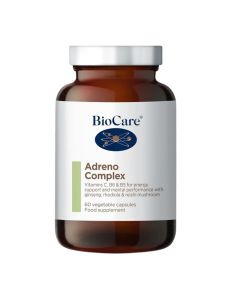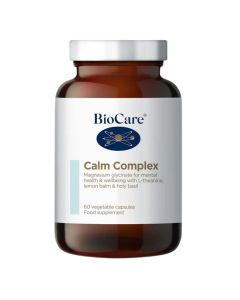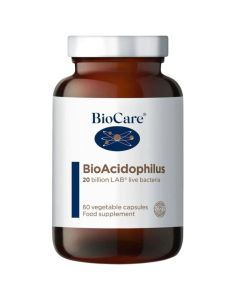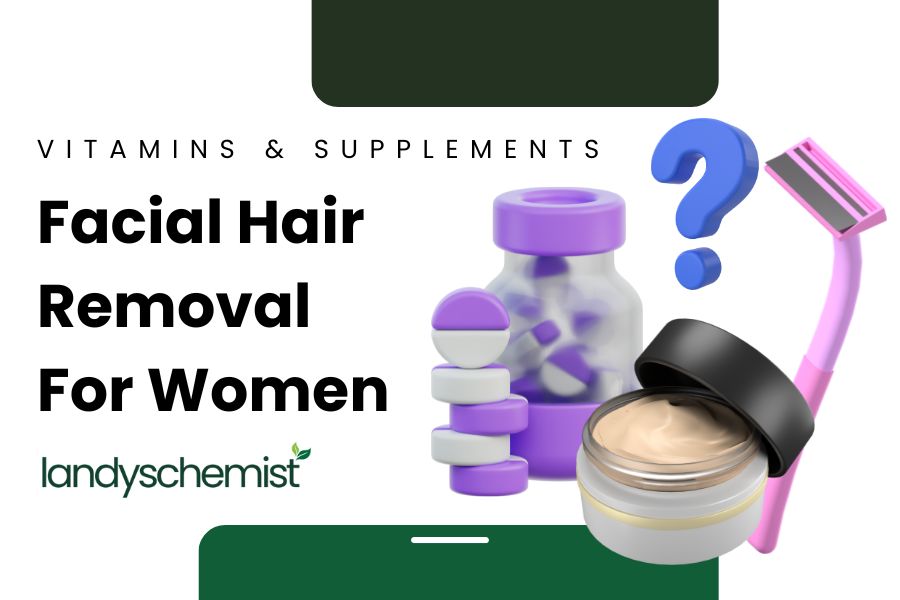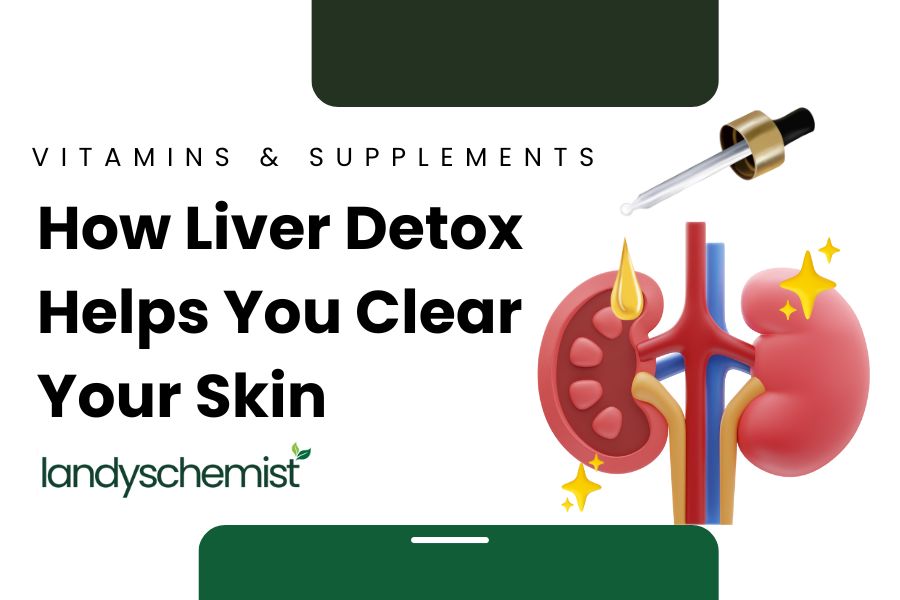
What Supplements Lower Cortisol?
What is Cortisol?
Cortisol, often referred to as the "stress hormone," plays a critical role in the body's response to stress. It is produced by the adrenal glands and is involved in various essential functions, including metabolism regulation, immune response modulation, and blood sugar control[i]. However, when cortisol levels become excessively high due to chronic stress or other factors, they can lead to various health issues. In this blog, we will explore what cortisol is, the symptoms associated with elevated cortisol levels in both men and women, and which supplements can help lower cortisol levels effectively.

What Causes High Cortisol Levels?
High cortisol levels can result from a variety of factors, including:
- Chronic Stress: Continuous exposure to stressors—be it emotional, physical, or psychological—can trigger prolonged cortisol production[ii].
- Poor Diet: A diet high in processed foods, sugars, and unhealthy fats can contribute to elevated cortisol levels.
- Lack of Sleep: Sleep deprivation significantly impacts cortisol production, often leading to higher levels.
- Medical Conditions: Certain conditions, such as Cushing's syndrome, can lead to abnormal cortisol production[iii].
Symptoms of High Cortisol Levels in Men vs. Women
High cortisol levels can manifest differently in men and women. Here are some common symptoms:
Symptoms in Women:
- Weight Gain: Increased fat accumulation, particularly around the waist (commonly referred to as "cortisol belly")[iv].
- Skin Changes: Increased acne or skin fragility.
- Menstrual Irregularities: Changes in menstrual cycles, including missed periods[v].
- Mood Disorders: Higher likelihood of anxiety and depression[vi].
Symptoms in Men:
- Weight Gain: Similar to women, men may experience weight gain, especially around the abdomen area
- Mood Changes: Heightened irritability, anxiety, and mood swings.
- Reduced Libido: Lower sex drive and potential erectile dysfunction[vii].
- Fatigue: Persistent tiredness despite adequate sleep.
What Supplements Lower Cortisol?
Several supplements can help lower cortisol levels effectively, supporting both mental and physical health. Here are three recommended options:
1. Biocare Adreno Complex
Biocare's Adreno Complex is specifically formulated to support adrenal function and regulate cortisol production. The key ingredients include adaptogens like ashwagandha and rhodiola, which help the body adapt to stress and lower cortisol levels[viii].
Key Benefits:
- Supports Stress Response: Helps the body cope with stress by regulating cortisol levels.
- Enhances Energy: Promotes sustained energy levels without the crash associated with high cortisol[ix].
- Improves Mood: May reduce feelings of anxiety and promote a sense of well-being.
2. Biocare Calm Complex
Biocare Calm Complex is designed to promote relaxation and reduce stress levels, ultimately contributing to lower cortisol production. This supplement features a blend of herbal extracts and nutrients known for their calming properties, such as L-Theanine, magnesium or lemon balm.
Key Benefits:
- Promotes Relaxation: Helps ease tension and anxiety, leading to lower cortisol levels.
- Supports Sleep Quality: Improves overall sleep, which is essential for managing cortisol[x].
- Balances Mood: Can help stabilize mood and improve emotional resilience.
3. Biocare BioAcidophilus
While primarily known for gut health, Biocare BioAcidophilus can also play a role in managing cortisol levels. Healthy gut bacteria are linked to reduced stress and anxiety, contributing to balanced cortisol production[xi].
Key Benefits:
- Gut-Brain Connection: Supports gut health, which is crucial for regulating mood and stress.
- Enhances Immune Function: A healthy gut can support overall well-being, helping to manage stress.
- Reduces Inflammation: Helps lower systemic inflammation, which can be exacerbated by high cortisol levels[xii].
Natural Ways to Lower Cortisol
In addition to supplements, there are various natural strategies to lower cortisol levels:
- Regular Exercise: Engaging in physical activity can help reduce stress and lower cortisol levels[xiii].
- Balanced Diet: Consuming a diet rich in whole foods, including fruits, vegetables, and healthy fats, supports overall health and cortisol management.
- Adequate Sleep: Prioritising quality sleep is crucial for hormone regulation, including cortisol.
- Social Support: Building strong social connections can help buffer stress and reduce cortisol levels[xiv].
When to Ask a Healthcare Professional?
If you suspect high cortisol levels due to persistent symptoms such as fatigue, weight gain, or mood swings, it may be time to consult a healthcare professional. They can perform a cortisol test to assess your levels and determine if additional interventions, such as lifestyle changes or supplements, are necessary.
FAQ
What is a normal cortisol level for a woman?
Normal cortisol levels can vary, but generally, levels are lower in the morning and rise throughout the day. For women, levels between 6 to 23 micrograms per decilitre (mcg/dL) in the morning are typically considered normal[xv].
How can I lower cortisol at home?
To lower cortisol at home, practice stress management techniques such as meditation, engage in regular exercise, maintain a balanced diet, and ensure adequate sleep.
What are cortisol belly and cortisol face?
"Cortisol belly" refers to weight gain around the abdominal area caused by elevated cortisol levels, while "cortisol face" may refer to facial puffiness or changes in appearance associated with high cortisol.
Can high cortisol levels affect weight loss?
Yes, high cortisol levels can make it more challenging to lose weight due to increased fat storage, particularly in the abdominal area, and can lead to cravings for unhealthy foods[xvi].
[i] https://www.ncbi.nlm.nih.gov/books/NBK538239/
[ii] https://www.ncbi.nlm.nih.gov/books/NBK541120/
[iii] https://www.niddk.nih.gov/health-information/endocrine-diseases/cushings-syndrome
[iv] https://www.verywellhealth.com/the-cortisol-weight-loss-controversy-3233036
[v] https://health.clevelandclinic.org/can-stress-cause-you-to-skip-a-period
[vi] https://pmc.ncbi.nlm.nih.gov/articles/PMC8584322/
[vii] https://pmc.ncbi.nlm.nih.gov/articles/PMC10251093/
[viii] https://www.healthline.com/health/stress/smart-girls-guide-to-adaptogens
[ix] https://ods.od.nih.gov/factsheets/Ashwagandha-HealthProfessional/
[x] https://pubmed.ncbi.nlm.nih.gov/35184264/
[xi] https://pmc.ncbi.nlm.nih.gov/articles/PMC7213601/
[xii] https://pmc.ncbi.nlm.nih.gov/articles/PMC7612780/
[xiii] https://pubmed.ncbi.nlm.nih.gov/35777076/
[xiv] https://pmc.ncbi.nlm.nih.gov/articles/PMC2921311/
[xv] https://www.uclahealth.org/medical-services/surgery/endocrine-surgery/patient-resources/patient-education/endocrine-surgery-encyclopedia/cortisol-test
[xvi] https://pubmed.ncbi.nlm.nih.gov/27345309/

